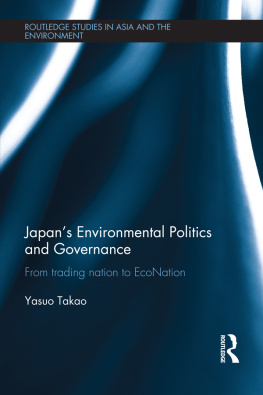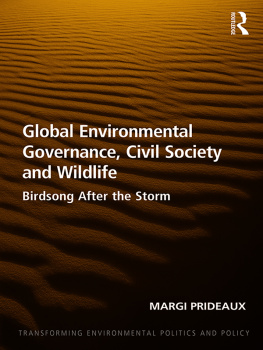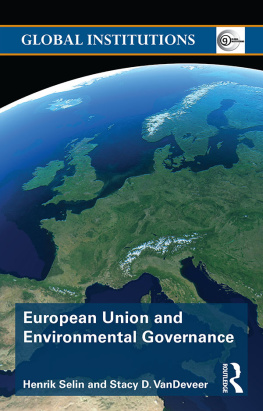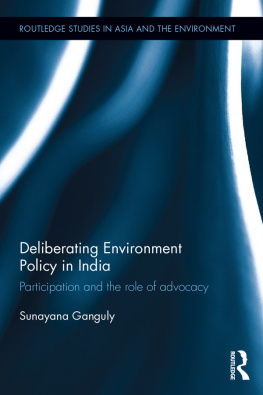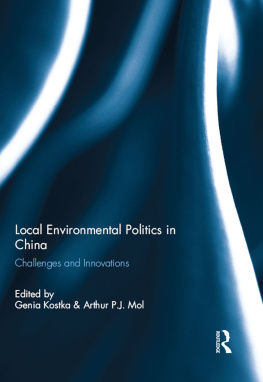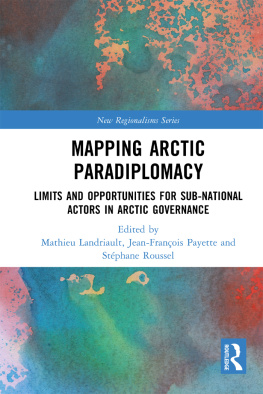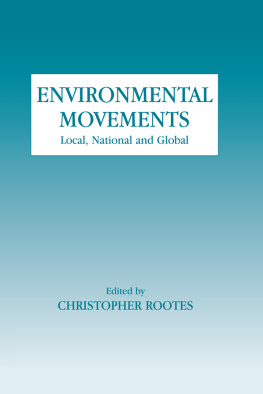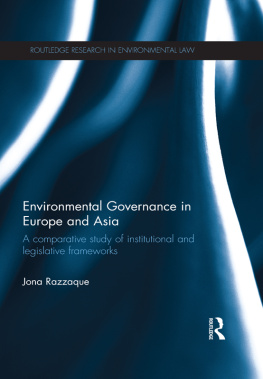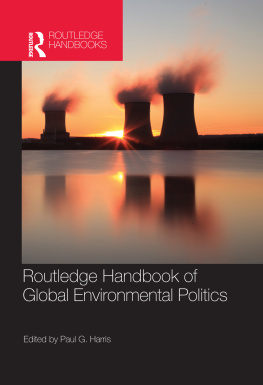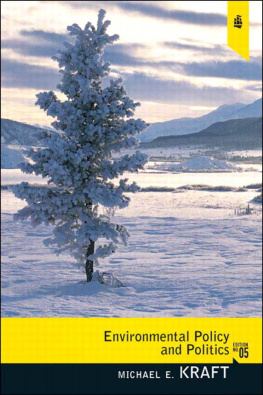Japans Environmental Politics and Governance
Environmental issues stretch across scales of geographic space and require action at multiple levels of jurisdiction, including the individual level, community level, national level, and global level. Much of the scholarly work surrounding new approaches to environmental governance tends to overlook the role of sub-national governments, but this study examines the potential of sub-national participation to make policy choices which are congruent with global strategies and national mandates.
This book investigates the emerging actors and new channels of Japans environmental governance, which has been taking shape within an increasingly globalized international system. By analyzing this important new phenomenon, it sheds light on the changing nature of Japans environmental policy and politics, and shows how the links between global strategies, national mandates, and local action serve as an influential factor in Japans changing structures of environmental governance. Further, it demonstrates that decision-making competencies are shared between actors operating at different levels and in new spheres of authority, resulting from collaboration between state and non-state actors. It highlights a number of the problems, challenges, and critiques of the actors in environmental governance, and raises new empirical and theoretical puzzles for the future study of governance over environmental and global issues. Finally, it concludes that changes in the tiers and new spheres of authority are leading the nation towards an environmentally stable future positioned within socio-economic and political constraints.
Demonstrating that bridging policy gaps between local action, national policy, and global strategies is potentially a way of reinventing environmental policy, this book will be of interest to students and scholars of Environmental Studies, Environmental Politics and Japanese Politics.
Yasuo Takao is Senior Lecturer of Political Science in the Department of Social Sciences and Security Studies of Curtin University, Western Australia.
Routledge Studies in Asia and the Environment
The role of Asia will be crucial in tackling the worlds environmental problems. The primary aim of this series is to publish original, high quality, research-level work by scholars in both the East and the West on all aspects of Asia and the environment. The series aims to cover all aspects of environmental issues, including how these relate to economic development, sustainability, technology, society, and government policies; and to include all regions of Asia.
Climate Change Governance in Chinese Cities
Qianqinq Mai and Maria Francesch-Huidobro
Sustainability in Contemporary Rural Japan
Challenges and opportunities
Stephanie Assmann
Deliberating Environmental Policy in India
Participation and the role of advocacy
Sunayana Ganguly
Japans Environmental Politics and Governance
From trading nation to EcoNation
Yasuo Takao
Climate Change Policy in Japan
From the 1980s to 2015
Yasuko Kameyama
First published 2016
by Routledge
2 Park Square, Milton Park, Abingdon, Oxon OX14 4RN
by Routledge
711 Third Avenue, New York, NY 10017
Routledge is an imprint of the Taylor & Francis Group, an informa business
2016 Yasuo Takao
The right of Yasuo Takao to be identified as author of this work has been
asserted by him/her in accordance with sections 77 and 78 of the Copyright,
Designs and Patents Act 1988.
All rights reserved. No part of this book may be reprinted or reproduced or
utilized in any form or by any electronic, mechanical, or other means, now
known or hereafter invented, including photocopying and recording, or in
any information storage or retrieval system, without permission in writing
from the publishers.
Trademark notice: Product or corporate names may be trademarks or
registered trademarks, and are used only for identification and explanation
without intent to infringe.
British Library Cataloguing in Publication Data
A catalogue record for this book is available from the British Library
Library of Congress Cataloging in Publication Data
Names: Takao, Yasuo, author.
Title: Japans environmental politics and governance : from trading nation
to econation / Yasuo Takao.
Description: Abingdon, Oxon ; New York, NY : Routledge, 2016. | Series:
Routledge studies in Asia and the environment ; 4 | Includes bibliographical
references and index.
Identifiers: LCCN 2016022519| ISBN 9781138855908 (hardback) |
ISBN 9781315720043 (ebook)
Subjects: LCSH: Environmental policyJapan. | Decentralization in
governmentJapan. | Central-local government relationsJapan. |
Environmental economicsJapan.
Classification: LCC GE190.J3 T35 2017 | DDC 333.70952dc23
LC record available at https://lccn.loc.gov/2016022519
ISBN: 978-1-138-85590-8 (hbk)
ISBN: 978-1-315-72004-3 (ebk)
Typeset in Times New Roman
by Wearset Ltd, Boldon, Tyne and Wear
People who live in the immediate environment experience the greatest environmental exposure risks and thus demand a greater role in prescribing solutions. Global strategies to environmental problem-solving cannot be contemplated without local demand and action. At the same time, local environmental problems require global solutions. The ideas for this book originated in a series of conversations with community leaders in Japan. The insight that sub-national governments may be able to bring together the plurality of stakeholders across scales of geographic space and at multiple levels of jurisdictions was gained from my direct observations at community level. Decentralized governance is normally understood as a process of the delegation of decision-making power to entities on the local level, but it is not necessarily about weakening national authority. The United Nations Development Programme (UNDP) defines decentralized governance as a coordinated relationship, which is developed by the balancing act of decision-making power and responsibility among national and sub-national governments, community, and market. In my project, these ideas were further developed through the close examination of decentralized international cooperation, not only to reconnect local action with national policy, but also to turn global strategies into local action, for environmental problem-solving.
For many observers of environmental governance, the challenges that environmental problems pose today are associated predominantly with what happens on the global level. However, it is equally true that one of the most obvious changes currently occurring is the change at the sub-national level, and it involves sub-national efforts to incorporate local action better into formal processes of national mandates and global strategies. The book presents a first attempt to better understand the potential role played by sub-national governments in overcoming the policy coordination difficulty that the cross-scale and multi-level approaches to environmental governance may create. It concludes that changes in the tiers of authority and in the new spheres of authority are leading the EcoNation of Japan towards an environmentally stable future. Ongoing changes at the sub-national level hold intriguing possibilities for reshaping the future landscape of policy-making and politics related to the environment. Further research on decentralized environmental governance holds great promise both for furthering the knowledge of environmental risk reduction, and for enhancing the involvement of sub-national actors in new forms of environmental governance.

